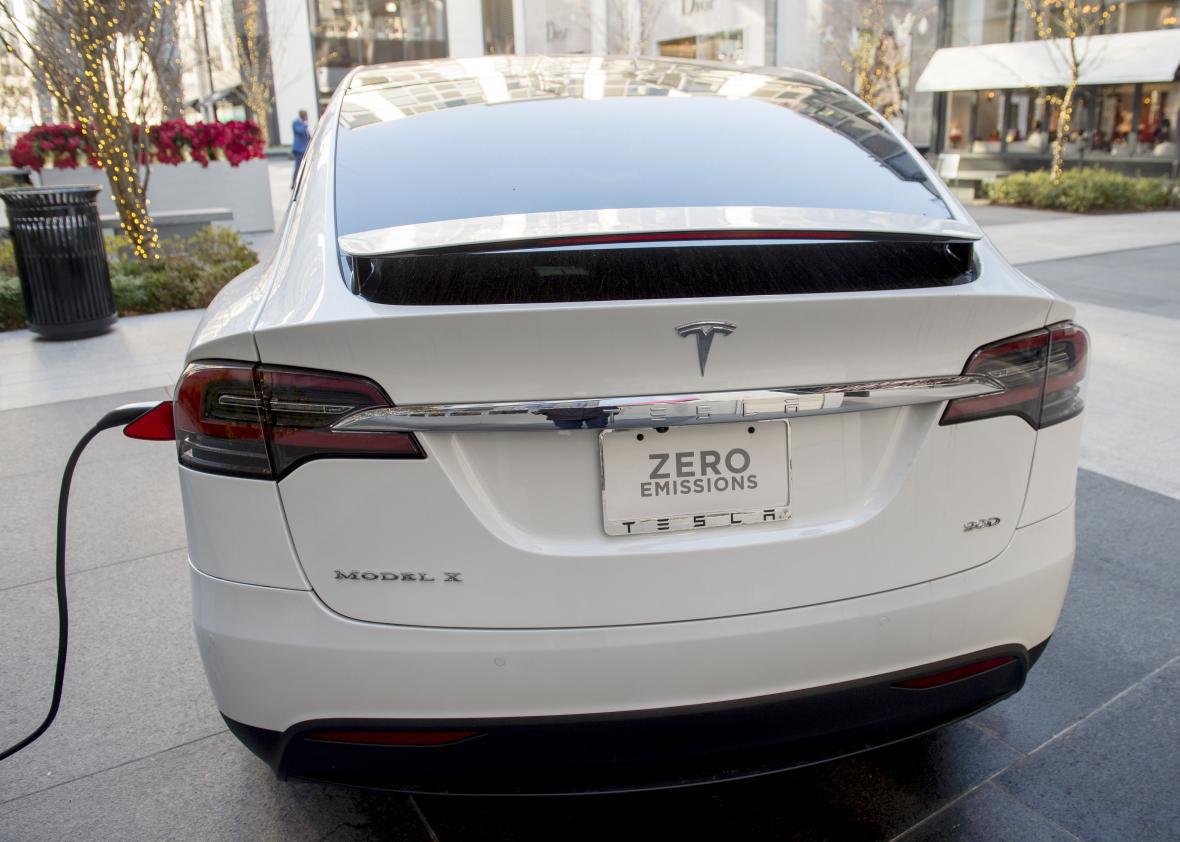For companies, cutting your customers a break when they’re in the path of a disaster is usually a solid PR move. But the electric car company Tesla’s attempt to help Florida drivers flee Hurricane Irma by remotely extending their batteries’ range has sparked a bit of a backlash.
Since last spring, Tesla vehicles purchased with a 60kWh battery option have actually come with a 75kWh battery. The company’s software electronically limited the range to 60kWh, though it gave drivers the option to upgrade to full capacity at any time—for several thousand dollars.
On Saturday, the blog Electrek reported that some drivers of 60kWh Teslas in Florida suddenly found their cars showing 75kWh of range, even though they hadn’t paid any more money. A Tesla spokesperson confirmed to Electrek’s Fred Lambert that the company had unlocked the batteries’ remaining capacity remotely, via software update. That would give them about 30 miles of additional driving on a single charge. The move reportedly came in response to a request from at least one Florida driver who needed the extra range to get out of danger.
The move at first seemed to draw a positive response on social media, with observers cheering the company for helping the evacuation effort. But it wasn’t long before some critics began highlighting the coin’s other side, which is that Tesla has (in a sense) been throttling customers’ vehicles unless they fork over extra cash.
As Justin T. Westbrook wrote on the blog Jalopnik, the move to unlock drivers’ batteries was “praiseworthy and appropriate,” but it also taps “our deepest fears of 21st-century driving.” As he noted, “it’s not hard to imagine a worst-case scenario where a company or corporation becomes a critical decider in disaster scenarios … out of consumer and government control in a critical moment.”
Westbrook’s assessment is probably fairer than that of the Twitter user who said the move invalidated Tesla’s claim to be helping the planet. All car companies are capable of building cars that go farther, or faster, or more safely than the ones they actually sell to most consumers. It’s just that we typically expect cars’ performance to be limited by their hardware rather than their software.
It might feel wrong, in some way, that Tesla “artificially” limits some vehicles’ range when it would cost the company no more to upgrade them. But such limits are common and widely accepted among software companies (and any media company with a paywall, for that matter), whose marginal cost of production often verges on zero.
In Tesla’s case, those who bought the 60kWh version knew upfront what they were getting. They preferred to save some money at the cost of some range. (Incidentally, Tesla announced in March that it would discontinue the 60kWh option on the Model S, because most customers were paying for full capacity anyway.) What the scheme really represented was a form of price discrimination that allowed the company to reap more profits from those willing to pay for the additional range, while still being able to sell additional units to more price-sensitive buyers. When you think about it, Tesla made a lot more money from those who bought the 75kWh batteries than it did from those who settled for the 60kWh versions.
None of that means the company deserves fawning praise for unlocking customers’ batteries ahead of Irma. The move cost Tesla virtually nothing, whereas plenty of other companies and people made more substantial sacrifices to help those in Irma’s path. But neither do we need to castigate the company for doing the right thing in this instance. I’ve seen no indication that Tesla was actively seeking praise or trying to capitalize on its move.
Rather, in a time when ever more machines come with “smart” features that their providers can manipulate at will, this episode should remind us that we don’t own our devices in quite the way we once did. It’s nice that Tesla took a humane step on behalf of its customers this weekend. We should worry that not every company will do the same in the future.
Previously in Future Tense:
